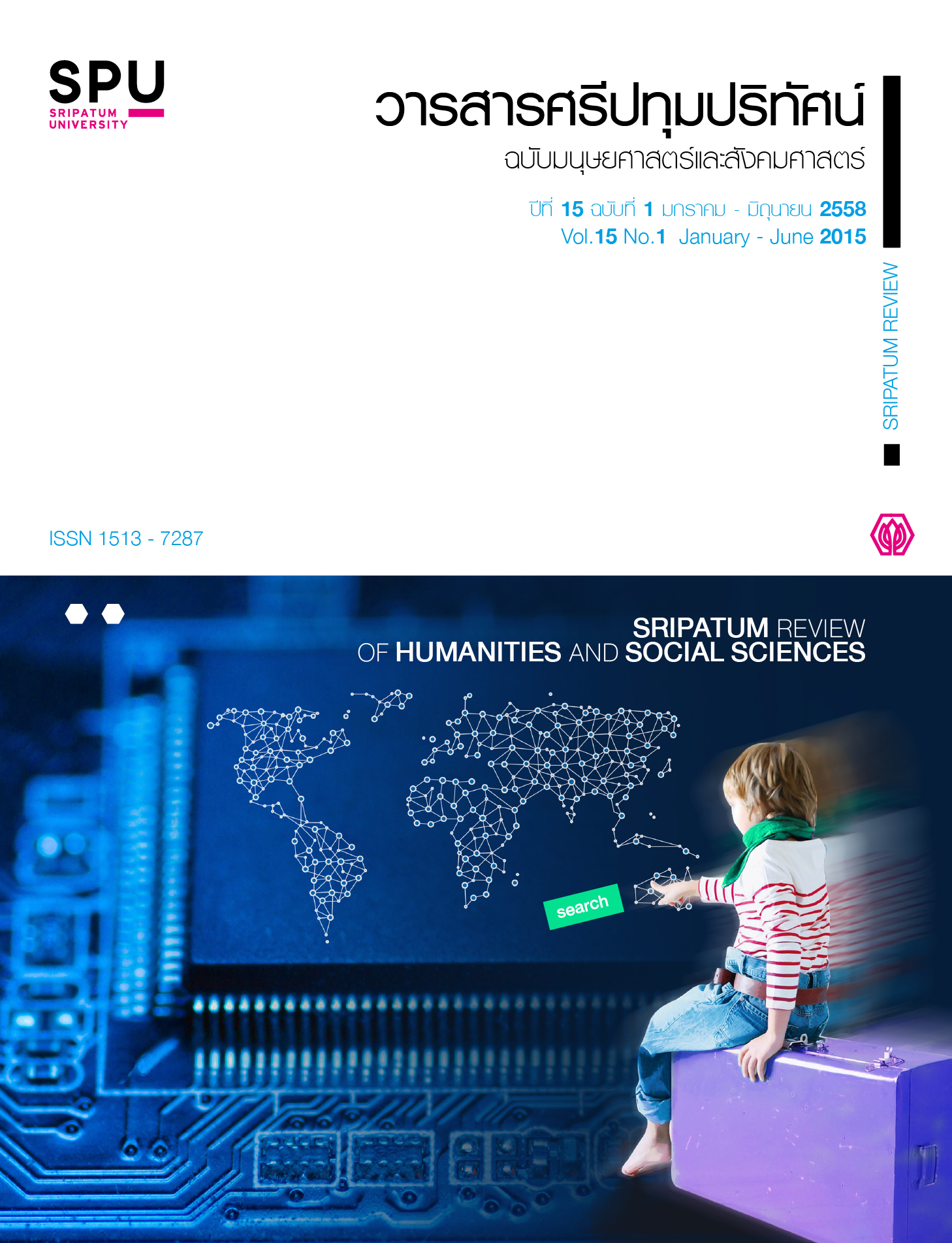THE MANAGEMENT MODEL OF BUDDHISM PROPAGATION OF THE SANGHA ADMINISTRATION ORGANIGATION, REGION 2
Main Article Content
Abstract
The objectives of this study were (1) to study the integration of concepts and theories related to the management of Buddhism propagation of Sangha Administration organization, Region 2, ( 2 ) to analyze the problems of Buddhism propagation of the Sangha Administration, region 2, and ( 3 ) to present the model of the integration of Buddhism propagation administration of Sangha Administration, Region 2.
The research methodology was the qualitative method. Data were collected from 20 key informants with the In-Depth-Interview and by Focus Group Discussion with 12 participants. The data were analyzed by descriptive method.
Findings were as follows:
1. Sangha Affairs administration coincide with the 2505 Sangha Act. Some details of the Act were cited in the Sangha Order Accord. Some administrative activities were carried out by the traditional method. New Sangha administration had integrated the Gulick and Urwick Model of administration and David K. Berlo’s communication theory with the Buddhist method of management and propagation to promote the Sangha Administrative abbots to have skill and potentials in Sangha affairs administration for the benefits of Buddhism qualitatively.
2. The Buddhism propagation administration of Sangha Organization, region 2
had the prominent problems. That was to say the Sangha Organization did not have enough personnel to disseminate Buddhism correctly and precisely. There were limited numbers of monks who have clear and correct knowledge about Buddhism. It was a problem of dissemination. Buddhists were confused with the wrong and deviant concepts and knowledge of the true Buddhism.
3. As for the model of the Buddhism Propagation Administration, the Sangha Organization, region 2, should have the important power and duty acting as the center for coordination of Buddhism disseminating monks at the regional and provincial levels to comply with the policies, rules, regulations, objectives set by the organization. The center should support and facilitate the teaching and learning and disseminating equipment, act as an advisor for Buddhism dissemination implementation, support the development of Buddhism disseminating monks, follow up and evaluate the Buddhism disseminating personnel, report and publicize the activity outputs, allocate the budget to support and patron the activities and personnel in Buddhism dissemination.
Article Details
1. กองบรรณาธิการสงวนสิทธิ์ในการพิจารณาและตัดสินการตีพิมพ์บทความในวารสาร
2. บทความทุกเรื่องจะได้รับการตรวจสอบทางวิชาการโดยผู้ทรงคุณวุฒิ แต่ข้อความและเนื้อหาในบทความที่ตีพิมพ์เป็นความรับผิดชอบของผู้เขียนแต่เพียงผู้เดียว มิใช่ความคิดเห็นและความรับผิดชอบของมหาวิทยาลัยศรีปทุม
3. การคัดลอกอ้างอิงต้องดำเนินการตามการปฏิบัติในหมู่นักวิชาการโดยทั่วไป และสอดคล้องกับกฎหมายที่เกี่ยวข้อง
References
บัญชายุทธ นาคมุจลินท์. 2556. วิเคราะห์การบริหารองค์กรในการเผยแผ่ พระพุทธศาสนาของศูนย์การเผยแผ่พระพุทธศาสนาประจำจังหวัดอุทัยธานี”. พุทธศาสตรดุษฎีบัณฑิต (พระพุทธศาสนา), บัณฑิตวิทยาลัย : มหาวิทยาลัยมหาจุฬาลงกรณราชวิทยาลัย.
ทรงวิทย์ แก้วศรี. 2550. “การศึกษาวิเคราะห์ยุทธวิธีในการประกาศศาสนาของพระพุทธเจ้า”. ปริญญาพุทธศาสตรดุษฎีบัณฑิต. สาขาวิชาพระพุทธศาสนา. บัณฑิตวิทยาลัย : มหาวิทยาลัยมหาจุฬาลงกรณราชวิทยาลัย.
ทัศนีย์ เจนวิถีสุข. 2555. “การสื่อสารเชิงพุทธกับ การเปลี่ยนแปลงสังคม”.วิทยานิพนธ์พุทธศาสตรดุษฎีบัณฑิต.บัณฑิตวิทยาลัย :มหาวิทยาลัยมหาจุฬาลงกรณราชวิทยาลัย.
พระครูภาวนาโสภิต (บุญรัตน์ เมืองวงศ์). 2553. “การบริหารการเผยแผ่พระพุทธศาสนาในล้านนา”.ปริญญาปรัชญาดุษฎีบัณฑิต.สาขาวิชาการบริหารการพัฒนา ทรัพยากรมนุษย์. บัณฑิตวิทยาลัย :มหาวิทยาลัยปทุมธานี.
นาวิน วงศ์รัตนมัจฉา. 2554. “ผลสัมฤทธิ์การเผยแผ่พรัพุทธศาสนาในกลุ่มชาติพันธุ์ลีซูของพระธรรมจาริก”. ปริญญาพุทธศาตรดุษฎีบัณฑิต. สาขาวิชาพระพุทธศาสนา. บัณฑิตวิทยาลัย : มหาวิทยาลัยมหาจุฬาลงกรณราชวิทยาลัย.
เอื้อมอร ชลวร. 2556. “พัฒนาการของรูปแบบวิธีการสอนของพระปราโมทย์ ปาโมชฺโช”. พุทธศาสตรดุษฎี-บัณฑิต สาขาวิชาพระพุทธศาสนา. บัณฑิตวิทยาลัย : มหาวิทยาลัย มหาจุฬาลงกรณราชวิทยาลัย.


